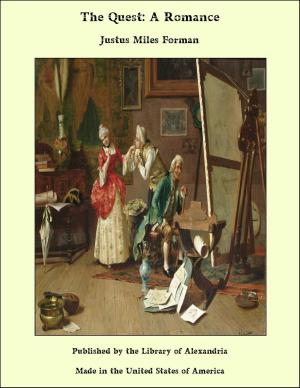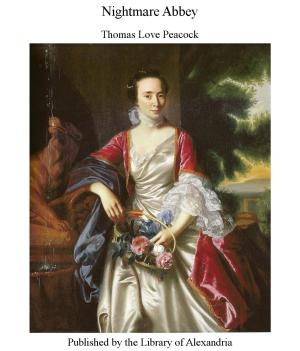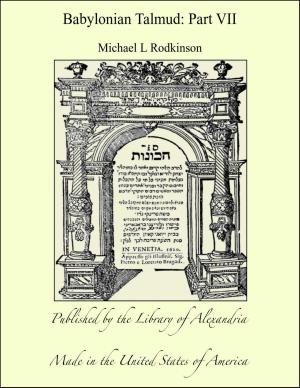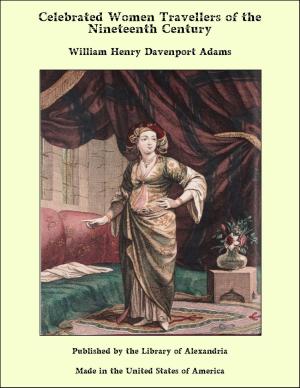Runnymede and Lincoln Fair: A Story of the Great Charter
Nonfiction, Religion & Spirituality, New Age, History, Fiction & Literature| Author: | John George Edgar | ISBN: | 9781465606600 |
| Publisher: | Library of Alexandria | Publication: | March 8, 2015 |
| Imprint: | Language: | English |
| Author: | John George Edgar |
| ISBN: | 9781465606600 |
| Publisher: | Library of Alexandria |
| Publication: | March 8, 2015 |
| Imprint: | |
| Language: | English |
IT was the eve of Christmas in the year 1214, when John was King of England; and, albeit England was on the verge of a sanguinary civil war, which was to shake the kingdom to its centre, and cause infinite suffering to families and individuals, London—then a little city, containing some forty thousand inhabitants, and surrounded by an old Roman wall, said to have been built by the Emperor Constantine—wore quite a holiday aspect, when, as the shades of evening were closing over the banks of the Thames, a stripling of eighteen, or thereabouts, walked up one of the long, narrow streets—some of which, indeed, were so narrow that the inmates, when they ascended to the house-tops, could converse and even shake hands with their opposite neighbours—and knocked loudly at the gate of a high house. It had the appearance of being the abode either of some great noble in attendance on the court, or one of those mediæval merchants who called themselves “barons,” and boasted of such wealth as few of the feudal nobles could call their own. In fact, it was the residence of the Fitzarnulphs, the proudest, richest, and most influential of the citizens of London. The stripling was of gallant bearing and fair to look upon. He was tall, though not so tall as to be in any way remarkable; and his person, well proportioned and compactly formed, indicated much strength, and promised much endurance. His countenance, which was set off with a profusion of fair hair and a growing moustache, was frank and open—so frank and open, indeed, that it seemed as if you might have read in his clear blue eye every working of the mind; and he had neither the aquiline features nor air of authority which distinguished the Norman warriors, young and old. His dress, however, was similar to that which a Norman squire—a De Vesci or a De Roos—would have worn; and he had the air, the manner, and the style of one who had been early apprenticed to arms, and trained in feudal castles to perform the feats of chivalry on which the age set so high a value. Nor was it clear that he had not been engaged in other than the mimic warfare of the tiltyard. More than one scar—none of them, fortunately, such as to mar his beauty—told of fields on which warriors had fought desperately for victory and for life. Admitted after some delay into the courtyard, and, after passing through it, into the interior of the high house at the gate of which he had knocked, the squire was ceremoniously conducted through what might be called the great hall of the mansion, and received in a small comfortably matted and heated chamber by a person somewhat his senior, who wore the gabardine of a citizen, and on his dark countenance a look of abstraction and gloom, which contrasted remarkably with the lightness and gaiety of his visitor.
IT was the eve of Christmas in the year 1214, when John was King of England; and, albeit England was on the verge of a sanguinary civil war, which was to shake the kingdom to its centre, and cause infinite suffering to families and individuals, London—then a little city, containing some forty thousand inhabitants, and surrounded by an old Roman wall, said to have been built by the Emperor Constantine—wore quite a holiday aspect, when, as the shades of evening were closing over the banks of the Thames, a stripling of eighteen, or thereabouts, walked up one of the long, narrow streets—some of which, indeed, were so narrow that the inmates, when they ascended to the house-tops, could converse and even shake hands with their opposite neighbours—and knocked loudly at the gate of a high house. It had the appearance of being the abode either of some great noble in attendance on the court, or one of those mediæval merchants who called themselves “barons,” and boasted of such wealth as few of the feudal nobles could call their own. In fact, it was the residence of the Fitzarnulphs, the proudest, richest, and most influential of the citizens of London. The stripling was of gallant bearing and fair to look upon. He was tall, though not so tall as to be in any way remarkable; and his person, well proportioned and compactly formed, indicated much strength, and promised much endurance. His countenance, which was set off with a profusion of fair hair and a growing moustache, was frank and open—so frank and open, indeed, that it seemed as if you might have read in his clear blue eye every working of the mind; and he had neither the aquiline features nor air of authority which distinguished the Norman warriors, young and old. His dress, however, was similar to that which a Norman squire—a De Vesci or a De Roos—would have worn; and he had the air, the manner, and the style of one who had been early apprenticed to arms, and trained in feudal castles to perform the feats of chivalry on which the age set so high a value. Nor was it clear that he had not been engaged in other than the mimic warfare of the tiltyard. More than one scar—none of them, fortunately, such as to mar his beauty—told of fields on which warriors had fought desperately for victory and for life. Admitted after some delay into the courtyard, and, after passing through it, into the interior of the high house at the gate of which he had knocked, the squire was ceremoniously conducted through what might be called the great hall of the mansion, and received in a small comfortably matted and heated chamber by a person somewhat his senior, who wore the gabardine of a citizen, and on his dark countenance a look of abstraction and gloom, which contrasted remarkably with the lightness and gaiety of his visitor.















